Martin Wolf on democratic capitalism
(and me as it turns out!)
When things got weirder with the election of Donald Trump and the triumph of the bizarre Brexit plebiscite, Martin Wolf started wondering and worrying about what was going on. He has been hard at work ever since on a book about the future of democratic capitalism which is now being released. Having read many of the chapters in draft, I can recommend it wholeheartedly.
As you can see by clicking through to this clip of him addressing a German IT conference, he’s pretty fired up about it. The clip is less than 60 seconds but the whole 14 minute address is worth watching. It comes with a Wolf special — a simple, staccato list of things to be done. (Note to self: write more lists. People like lists.)
With his European Jewish background, Wolf is doing what he can to try to keep the world safe from the madness that engulfed it in the 1940s. And this is an extract from his recent column on it in the FT.
‘The marriage of liberal economics and democracy has brought immense benefits to the world, but faces its toughest test in decades. What needs to be done? The energy behind populism cannot be ignored, let alone suppressed. It needs to be harnessed, instead. Politicians committed to liberal democracy must respond to the widespread distrust of elites not by surrendering to them, but by making themselves trustworthy, once again. This is what Franklin Delano Roosevelt achieved in the 1930s, by combining the innovative ideas and competence of people such as Frances Perkins, the labour secretary who laid the foundation of the US social security system, with barnstorming rhetoric against what he called “government by organised money”.
Successful renewal is possible now, too…. It is impossible to sustain a universal suffrage democracy with a market economy if the former does not appear open to the influence — and the latter does not serve the interests—of the people at large. This, in turn, demands a political response rooted not in the destructive politics of identity, but of welfare for all citizens—that is, a commitment to economic opportunity and basic security for all.
He’s also a signed-up member of the campaign for citizens' juries (as you’ll hear I’ve been whispering in his ear, though I expect he came to the conclusion independently).


The FT recently hosted a presentation by Martin before he joined a panel to discuss his ideas. The presentation is here and the panel session is here. And at this point he had me blushing!

And then there was JOY!



Working with or against the grain of reality
Ambitious Naturalism
I was intrigued to run into John Salvatier by reading his excellent post “Reality has a surprising amount of detail”. I’ve argued something similar in my essay on the role of ‘unselfing’ in learning about the world and being able to act in it. The philosopher Michael Polanyi makes a similar point with his insistence that we do not ‘use’ tools in any simple way, but rather learn to ‘indwell’ in them. That might sound fancy but it has a simple meaning. We can barely use a hammer until we have absorbed it into our bodily consciousness, until we learn, by practice, to use it as an extension of ourselves. That’s how we ride a bike. It is even more the case for artefacts involving finer motor skills like musical instruments, or keyboards. Anyway, here’s John’s description of himself.
For the last 5 years I've been thinking about and working with world improvers 1-1.
I am interested in how to get the world on track. The world seems mysteriously not right. But the mystery also seems decipherable. What’s at the center?
A brief piece on how I see the puzzle is here, but very shortly:
Somehow our culture and institutions are constantly trying to work against the grain of reality. We’re disoriented and continually have to play catchup.
But whatever problems we have,
Whatever situation we’re in,
We can respond properly and naturally.With the right ethos we can work with the grain of reality, rather than against.
I search for scalable and non-scalable tools to train that ethos.And I run semi-regular workshops and studios. For example, a studio on working with intense questions playfully or a workshop on approaching confusing technical problems.


ChatGPT
Ezra Klein put his finger on the issue when he said that the marginal cost of bullshit had just fallen to zero.


I thought the second answer it came up with was pretty cool, until someone told me it was made up!
Australian chess grandmaster and economist David Smerdon takes up the story in a 20 tweet thread


And here’s Smerdon with a game worthy of the new generation of chess computers like Alpha Zero (Only a few months before Alpha Zero even arrived to show us how.)

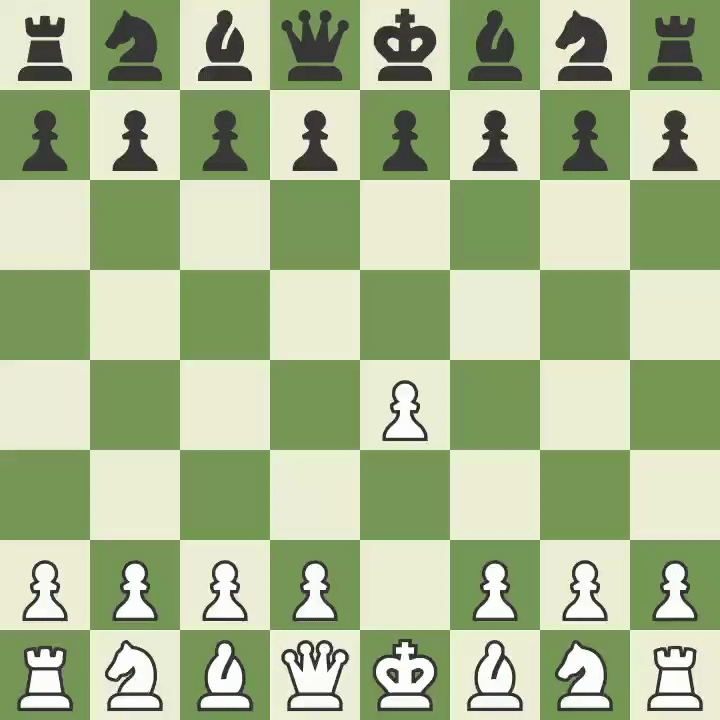
Ukraine
I want to get a clear understanding of your idea of NATO expansion because now I see nothing but humiliation for Russia if you proceed. How do you think it looks to us if one bloc continues to exist while the Warsaw Pact has been abolished? It’s a new form of encirclement if the one surviving Cold War bloc expands right up to the borders of Russia. Many Russians have a sense of fear. What do you want to achieve with this if Russia is your partner? [T]hey ask. I ask it too: Why do you want to do this? We need a new structure for Pan-European security, not old ones! Perhaps the solution is to postpone NATO expansion until the year 2000 so that later we can come up with some new ideas. Let’s have no blocs, only one European space that provides for its own security.
Yeltsin to President Bill Clinton, May 10, 1995
A striking quote from a not-very-good article on the Ukraine war.


Justin Murphy on Bernie Madoff
A few observations on the new documentary about Bernie Madoff.
The SEC seems awful. They looked at this case multiple times and failed to act even when they were given a complete analysis of the situation by a righteous derivatives analyst named Harry Markopolos. This guy literally wrote a document called THE WORLD'S LARGEST HEDGE FUND IS A FRAUD, which detailed more than 30 red flags and showed that Madoff's returns were mathematically impossible. The SEC's inability to shut down Madoff after all of these opportunities reeks of either extreme incompetence or some kind of implicit collusion.
It's unclear how Madoff thought he was going to get away with it. I don't understand how he ever planned to exit and win this scam. Perhaps there was some endgame, but it wasn't clear from the documentary.
The way the situation unwound, legally, is pretty interesting. The trustee—the guy who has to sort out all the assets and liabilities—was a guy named Irving Picard. Picard identifies which of Madoff's clients profited from their relationship with Madoff. Those profits are technically ill-gotten gains. Picard sues those clients to "claw back" their money, and he is incredibly successful. He clawed back more than 14 billion of the total 19 billion dollars that Madoff took from investors. The thing is, many of these clients were just normal, middle-class families who got duped by Madoff and now all of a sudden they're losing their retirement funds. Meanwhile, Irving Picard through this process earns more than a billion dollars in fees!
Finally, JPMorgan Chase. They had the clearest view on Madoff's dealings of anyone in the world because Madoff held the ponzi bank account with them. Due to laws such as the Bank Secrecy Act, banks have to monitor all large transactions by their clients. They're legally bound to know what's going on. And this bank account had billions of dollars in it, with millions going in and out to simulate the activity of a legitimate operation. It seems unlikely that JPMorgan Chase was not, on some level, privy to what Madoff was doing. But JPMorgan Chase is essentially more powerful than the government, so they get away with anything. "A 20-year long RAP sheet that includes at least 80 major legal actions that have resulted in over $39 billion in fines and settlements... wide-ranging, predatory, and recidivist lawbreaking... from 1998 through 2019."

And now for some propaganda

Pity the Royal Commission doesn’t call witnesses from the media
Guy Rundle on The Voice
[A]ll it needed to be was something on the order of this:
“The Voice to Parliament will be an assembly of Australian First Nations peoples, of between 24-48 members, chosen by their communities, convening around three times a year for a total of nine to 12 weeks to debate matters crucial to First Nations peoples, make specific proposals, and respond to government policies. It will be advisory only, have no legislative powers, and no delegated administrative powers. The referendum question we are putting to the people enables Parliament to make the law that will put the Voice into the constitution. Parliamentary laws will then give the Voice this specific form.”
Now, how difficult would that have been? It gives millions of voters a clear idea of what the Voice would be, how it will work, gives them a mental picture of it actually sitting in the Old Parliament House, etc. So what if it is then 60 members, or meets six times a year. No one is going to feel they were lied to. When people say they want “detail”, they don’t actually mean “detail”. They mean they want to know the concrete form of the thing they’re being asked to vote for. Even here, there remains confusion. I take the Langton-Calma report to say that the Voice delegates will be chosen by communities, rather than by an all-nation election of First Nations peoples. The PM says it will be elected. Which is it?
But there’s a greater problem. Because there’s no real doubt that a double game is being played by both Yes supporters and the government. They want to reserve the capacity to eventually delegate administrative tasks to the Voice, or public servants attached to it … . It would never have legislative powers. But all sorts of bodies have delegated powers and laws and regulations to make that possible.
It would also of course be a nightmare to suggest this possibility in the public debate, because then the debate is around ATSIC II. The smart thing would have been to explicitly rule out any such delegation of powers, and stick to it for 5 or 10 years, before revisiting the question as an entirely separate fight on its own terms.
But the smart thing isn’t much in evidence from the Yes side. Instead of responding to what is a widespread request, from both non-First Nations and First Nations peoples for more concrete form, the leaders of the Yes campaign, and some of their supporters, are doing a one-two self-knockout punch: insisting that voting up the Voice is a historic moment that if we fail will be a historical denial of our blah blah blah, and also that the Voice is not actually a political question per se. …
Progressives have, in general, been hopeless at pushing the Yes vote forward. They’ve attached to the Voice cause without much inquiry as to how much support it has among First Nations people. Tomorrow many will march in Invasion Day rallies organised by Warriors of the Aboriginal Resistance, who are scathing about the way in which a “Voice first” politics was stitched up by selective invitations to the Uluru discussions, and the degree to which an absence of truth and treaty processes renders the Voice as a white object. The petulant whining regarding detail, “There’s a 200-page report”, is the cry of people who read reports for a living.

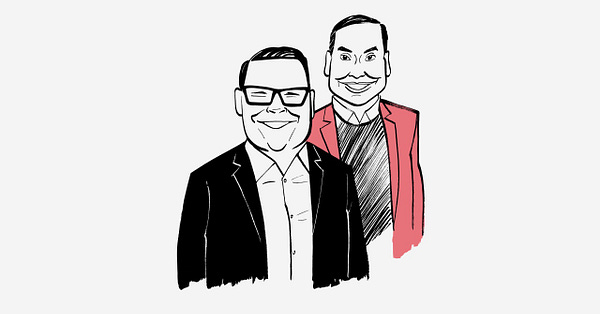
Branko on Xi
Precisely because our press moves in such lock-step, groupthink is everywhere, so we should be sceptical. We should also be grateful for those who are informed, are not crazy and put a contrary view. As Branko Milanovic does in this piece.
Is he right in resisting the narrative that Xi is transforming before our eyes into your canonical tyrant? I wouldn’t know. Further, it’s usually worthwhile to guard against too lofty an interpretation of the powerful. However his case seems worth taking seriously.
There is no sudden turn-around or change. This is still the same Xi, and the policy is one of “readjustment” or “rectification”.
To understand how intelligent politicians (and I think Xi belongs to that category) operate in the countries of political capitalism, one needs to start with two cardinal principles of governance: tactical flexibility, and the “bird in a cage”. The first term goes back to Lenin. Its meaning is clear. Policies ought to be flexible, in a tactical sense, while never losing sight of an ultimate vision. In Xi’s case, this ultimate vision is “socialism with Chinese characteristics”, “moderately prosperous society” and “common prosperity.” The second term goes back to Chen Yun (the father of China’s First Five-year plan). If the private sector is controlled too tightly, it will, like an imprisoned bird, suffocate. And the people will suffer. But if is left entirely free, it will fly away, bringing (as it did in the second term of Hu Jintao’s rule) all the negative effects of capitalism: increased inequality, lack of social mobility, monopolies, rule of moneyed elites, corruption etc. …
With the situation that Xi inherited in 2012, the only way forward was to move against pervasive corruption by arresting those engaged in grand embezzlement and sale of favors, to try to lessen economic inequality through state transfers and more recently the relaxation of the hukou system, and to reduce locational inequality of opportunities by implementing an ambitious policy of investments in Western provinces. Further, after covid slowed things down, to “correct” the power of the very loosely regulated financial and non-financial giants (like Alibaba).
These corrective measures were, perhaps because they were also accompanied by Xi’s cult of personality, interpreted as steps toward a new Maoism. But they were never that: they were tactical movements necessitated by the desire to keep the achievement of the strategic objective in mind.


Patchwork quilts and other artefacts of capitalism
Virginia Postrel explains why crafts that somehow conjure up ‘traditional’ ways of working are in fact cultural artefacts of capitalist ways of working. It’s kind of obvious when you think about it, but she makes her point in an interesting way.
Even the cotton thread for all those neat hand stitches required significant innovation. Before the 19th century, sewing thread was expensive silk or linen.
“Cotton sewing thread is the fine, hard-finish product of plied yarns twisted tightly in the plying process against the original direction of spinning,” writes historian of technology Rachel Maines. “No process existed for making this product before the first decade of the 19th century; only the soft and relatively uneven yarns used for weaving and the untwisted floss employed in embroidery were available. Thread before 1810 was thus mainly a handmade and costly component of quilt-making. …
If you think of patchwork quilts as remnants of a tranquil age before mass-market production, all this commerce and technology will seem like cheating. But it's true to the craft's actual heritage.
Patchwork quilts were never necessities. They were practical pleasures—self-expression enabled by mass production, handwork made possible by technological advances. They are as modern as their crisp colors and precise geometries. Do-it-yourself crafts can only exist, after all, when you no longer have to do everything yourself.


John Gray on Robert Kaplan and the tragedy of international relations
The modern faith that every human conflict is fixable is a secular humanist avatar of the Christian promise of universal salvation, emptied of its transcendental content. Proponents of regime change explain the grisly fiascos that ensued as avoidable errors. With proper planning and sufficient determination, they insist, Afghanistan and Iraq could have been turned into something like Western democracies. The tragic alternative of tyranny and anarchy that Kaplan recognised too late in Iraq did not exist. In this world-view, there are no tragedies, only mistakes or weakness of will.
Yet the consequences of the Iraq War were not avoidable. When they have been one and the same for decades, overturning a dictatorial regime may destroy the state itself. When the underlying population comprises communities with a long history of antagonism, the inevitable result of such intervention is large-scale violence. As I wrote in the New Statesman in early March 2003, before the American-led invasion was launched later that month: “There is a risk that the Iraqi state, a rickety structure cobbled together by departing British civil servants, will fracture in Yugoslav or even Chechen fashion.” In fact the upshot, which included the rise of Islamic State and a genocidal assault on the Yazidi people, was worse than either of these disasters. …
In any new Russian offensive Ukraine must be strongly defended, with the US and Europe (now including the opaque and devious German chancellor, Olaf Scholz) giving it the arms it needs. But Russia can be permanently contained only by calling on the influence of China, also a repressive autocracy. There is no realistic scenario in which the West, a declining force in world affairs, can prevail over both powers.
This does not mean lowering our guard against Chinese penetration of strategic industries – on the contrary, vigilance must be increased. But soliciting Chinese support in restraining Russia will require moderating the West’s stance in support of Taiwan, a flourishing democracy. It is a hideous choice, and yet ineluctable if the conflict in Ukraine is not to drift into becoming a world war. As Kaplan observes, “Geopolitics – the battle of space and power played out over a geographical setting – is inherently tragic.”







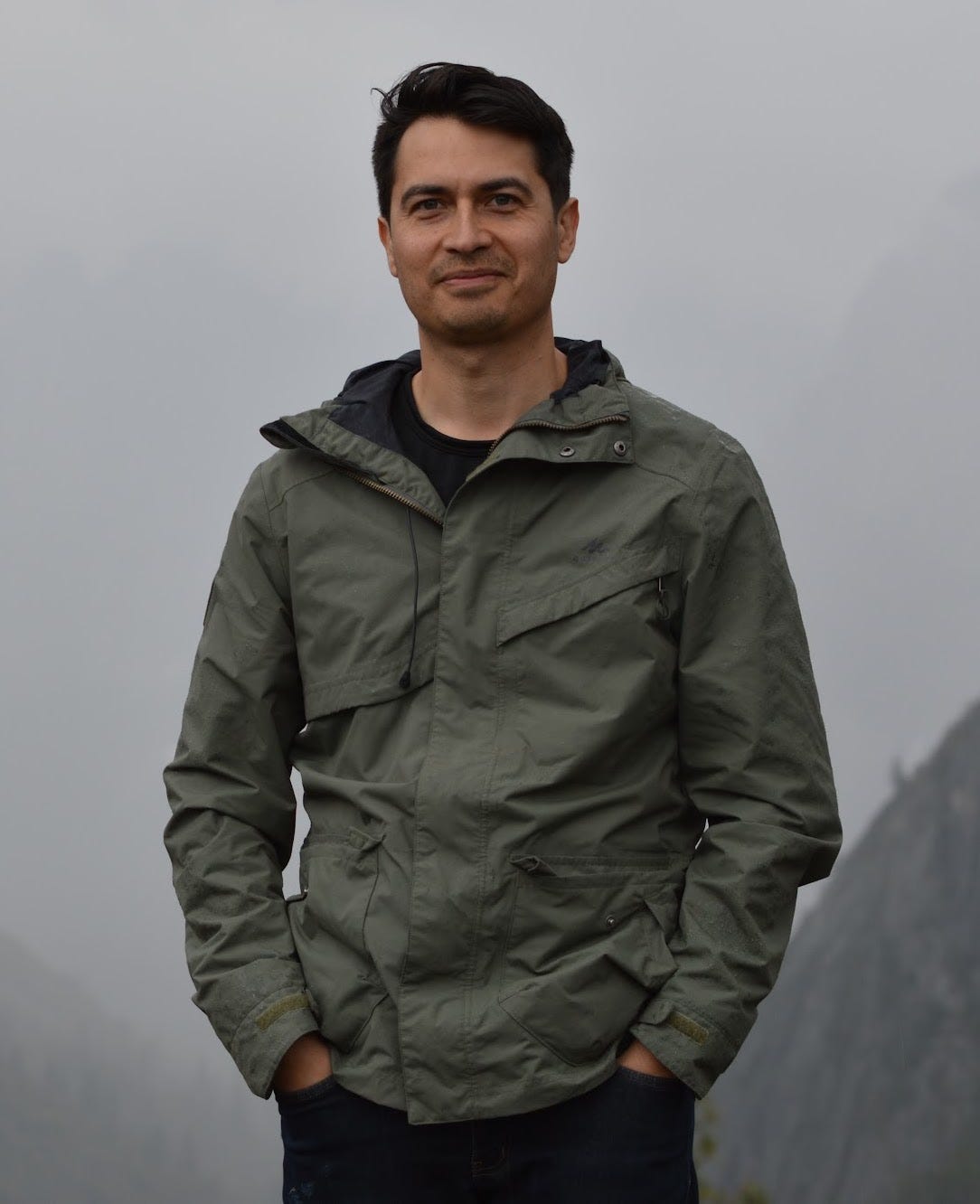




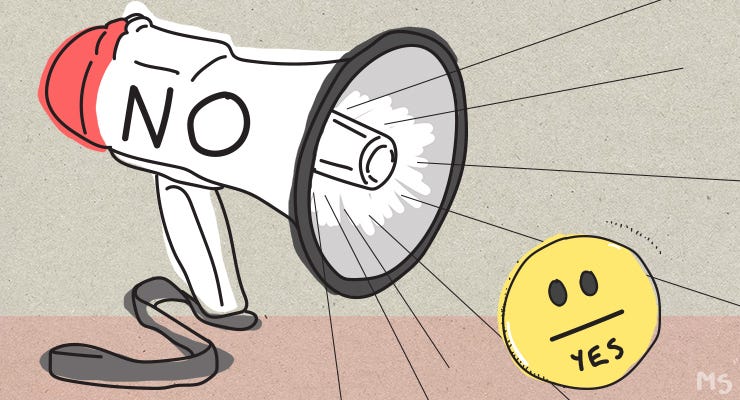
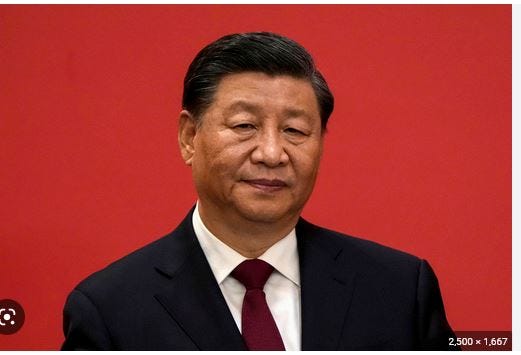





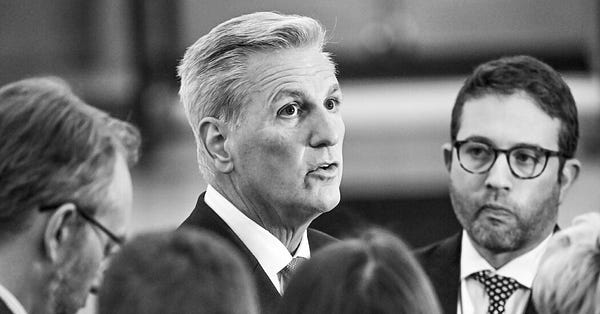

Thanks so much for your feedback Jim
Great to hear of your enjoyment, even if I don't recommend skiing on your side!
I love the pieces from Martin Wolf - and NG - please accept his praise without any modesty re the selection of juries for big democratic reform. Congratulations to Dunera Boy Bern Brent - for achieving his 100th birthday. And now that we've tracked down the ugly Tudge - can we please lock him away - and that ignorant red-head from Qld, too! Lots of great listening and reading - I'm feeling as happy as that dog galloping and sliding down the frozen ski-slopes!!!